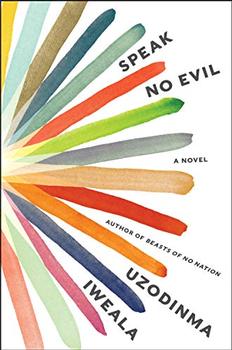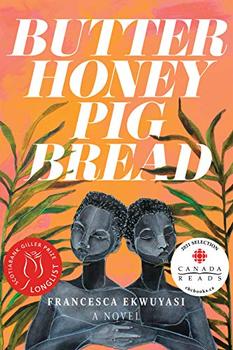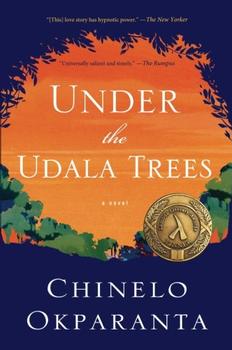Summary | Excerpt | Reviews | Beyond the book | Read-Alikes | Genres & Themes | Author Bio

Young Nigerian American writer Uzodinma Iweala is fast becoming known as a powerful chronicler of contemporary Africa. His debut novel, Beasts of No Nation, about child soldiers fighting in a guerrilla war, won several awards and was adapted into a critically acclaimed film on Netflix. His second book, Our Kind of People, is a nonfiction examination of the HIV/AIDS crisis in Nigeria. Now, with Speak No Evil, Iweala tackles themes of immigration and identity - both national and sexual - in what is poised to be his most consequential work to date.
Eighteen-year-old Niru is on the edge of beginning his adult life. About to graduate with honors from an exclusive private school in Washington, DC, he's the star of the track team and has already been accepted at Harvard early decision. His Nigerian immigrant parents, both high-achieving professionals, expect nothing less. On the personal side, things are a little less clear-cut. Niru's long-time best friend, Meredith, harbors romantic feelings toward Niru, but when she tries to act on her feelings, Niru is forced to admit something that he's never even articulated to himself: he's gay.
And when, after a well-meaning Meredith tries to help Niru find a boyfriend, Niru's parents discover his secret, their anger sets in motion a series of events that might forever change his carefully planned future. Despite being otherwise modern and open-minded, and having lived in the United States for decades, Niru's parents share the Nigerian government-sanctioned hostility toward homosexuality. Their opinion of their golden child changes, and then Niru distrusts his own most fundamental feelings, his very self. "I can't take it anymore," Niru says at one point. "It's crushing me, it's too confusing for me to live all these lives when I only want one."
Divided into two parts, narrated from Niru and Meredith's points of view, Speak No Evil illustrates both powerfully and poignantly the rifts that can divide generations and the complex process of forming a national identity, even for a young man who has achieved nearly every American measure of success. Iweala consistently riffs on the well-known "it gets better" trope, both in terms of finding acceptance of sexual and gender diversity and also in terms of overall accomplishments. In contrasting Niru and Meredith's stories, he also dramatically illustrates that there are different degrees of privilege - and that such privilege should never be taken for granted.
Speak No Evil leaves readers with many unanswered questions, but not because of any failure on the part of the narrative or its author. Instead, the questions that will remain with readers are deliberate and sobering - questions that will provoke contemplation or discussion, as readers ponder what might have been or, for some characters, what might still be possible.
![]() This review was originally published in The BookBrowse Review in March 2018, and has been updated for the
March 2019 edition.
Click here to go to this issue.
This review was originally published in The BookBrowse Review in March 2018, and has been updated for the
March 2019 edition.
Click here to go to this issue.

If you liked Speak No Evil, try these:

by Francesca Ekwuyasi
Published 2020
Spanning three continents, Butter Honey Pig Bread tells the interconnected stories of three Nigerian women: Kambirinachi and her twin daughters, Kehinde and Taiye.

by Chinelo Okparanta
Published 2016
Inspired by Nigeria's folktales and its war, Under the Udala Trees is a deeply searching, powerful debut about the dangers of living and loving openly.
I have lost all sense of home, having moved about so much. It means to me now only that place where the books are ...
Click Here to find out who said this, as well as discovering other famous literary quotes!
Your guide toexceptional books
BookBrowse seeks out and recommends the best in contemporary fiction and nonfiction—books that not only engage and entertain but also deepen our understanding of ourselves and the world around us.